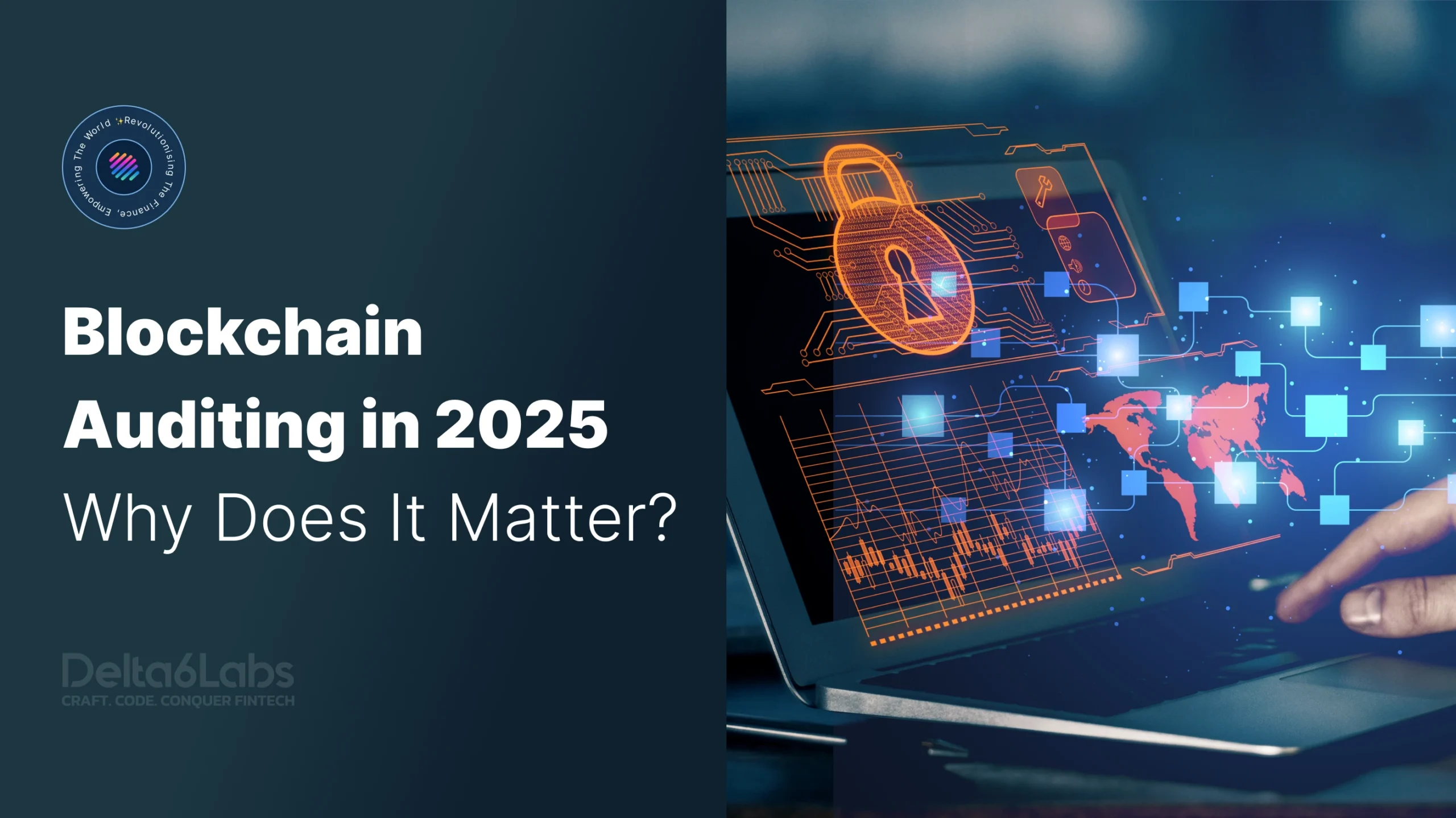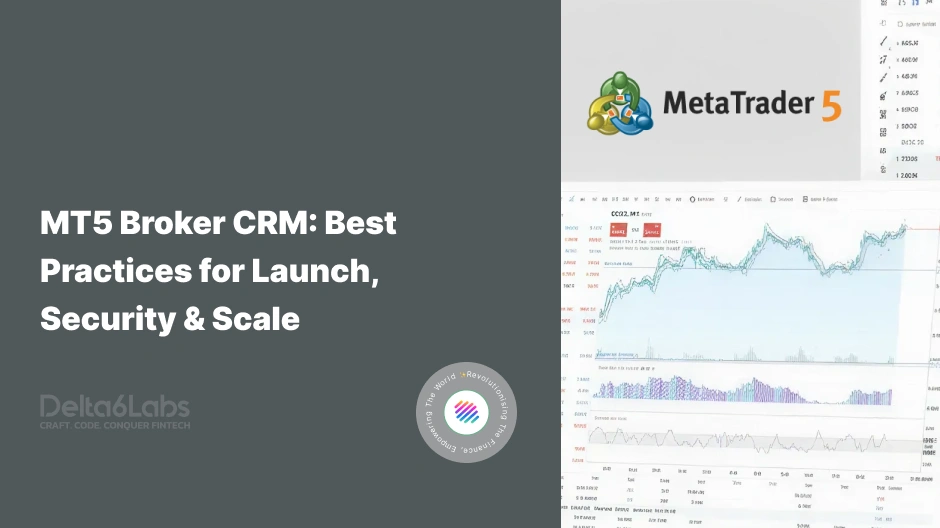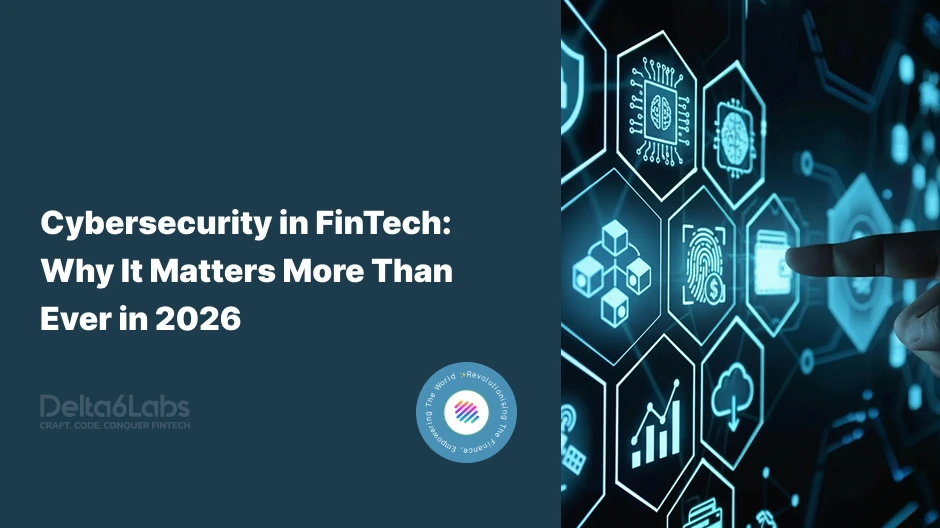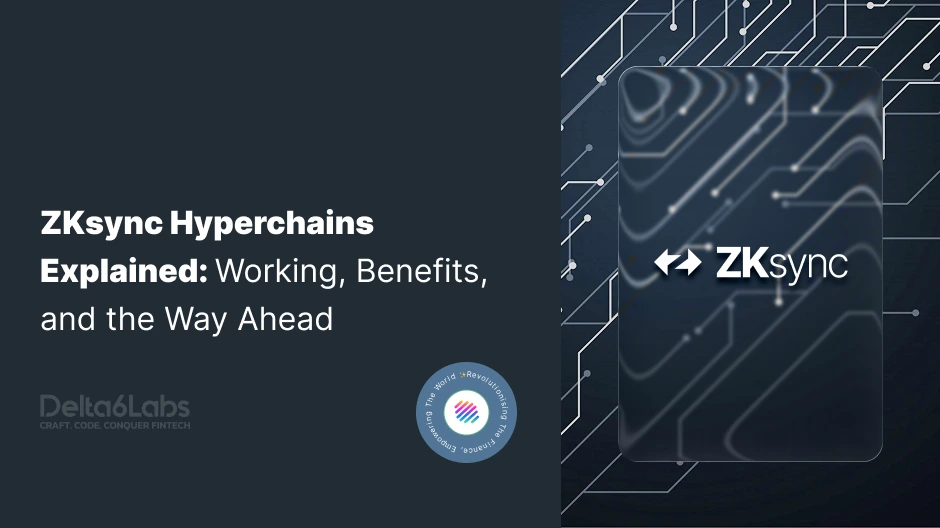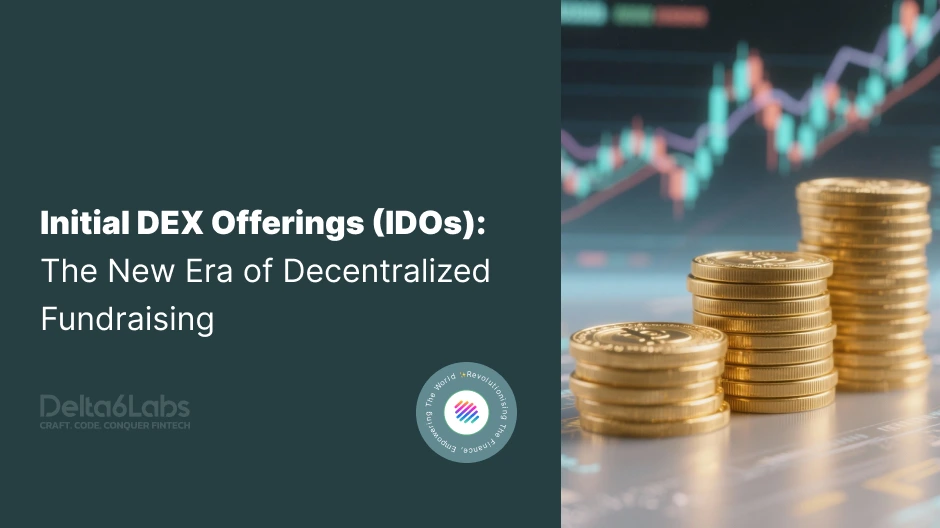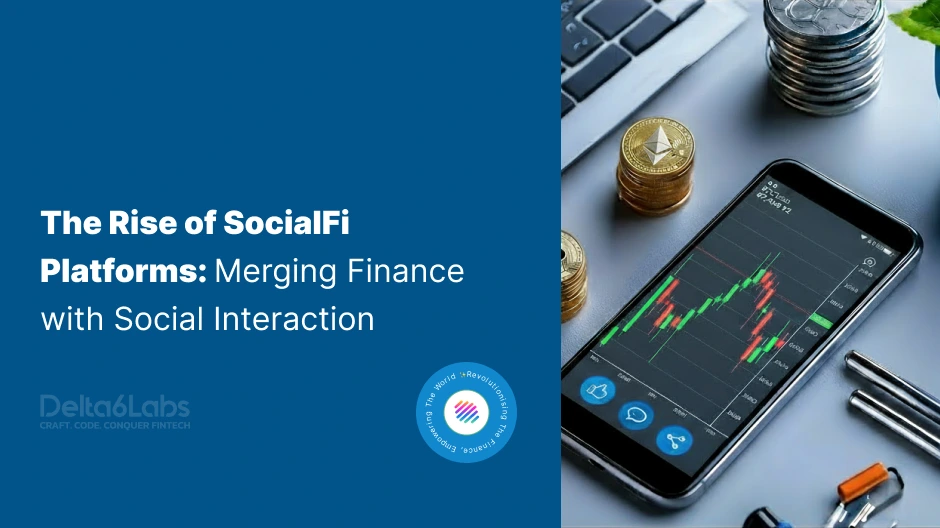What is Blockchain Audit? Everything You Need to Know in 2025
Table of Contents
Smart contracts are also incorporated with blockchain, which is signed by two or more parties to bring transparency to transactions. These smart contracts are designed to execute themselves automatically when the predetermined conditions are met. But blockchain technology is still evolving, and there are some loopholes due to which cases of cyber theft, scams, and phishing are reported every day. To keep a check on these loopholes, bugs, and other errors, auditing blockchains and smart contracts is mandatory. The global market size of blockchain security and auditing was $3 billion in 2024, and it is estimated to reach $38 billion in 2029, with a CAGR of 65%.
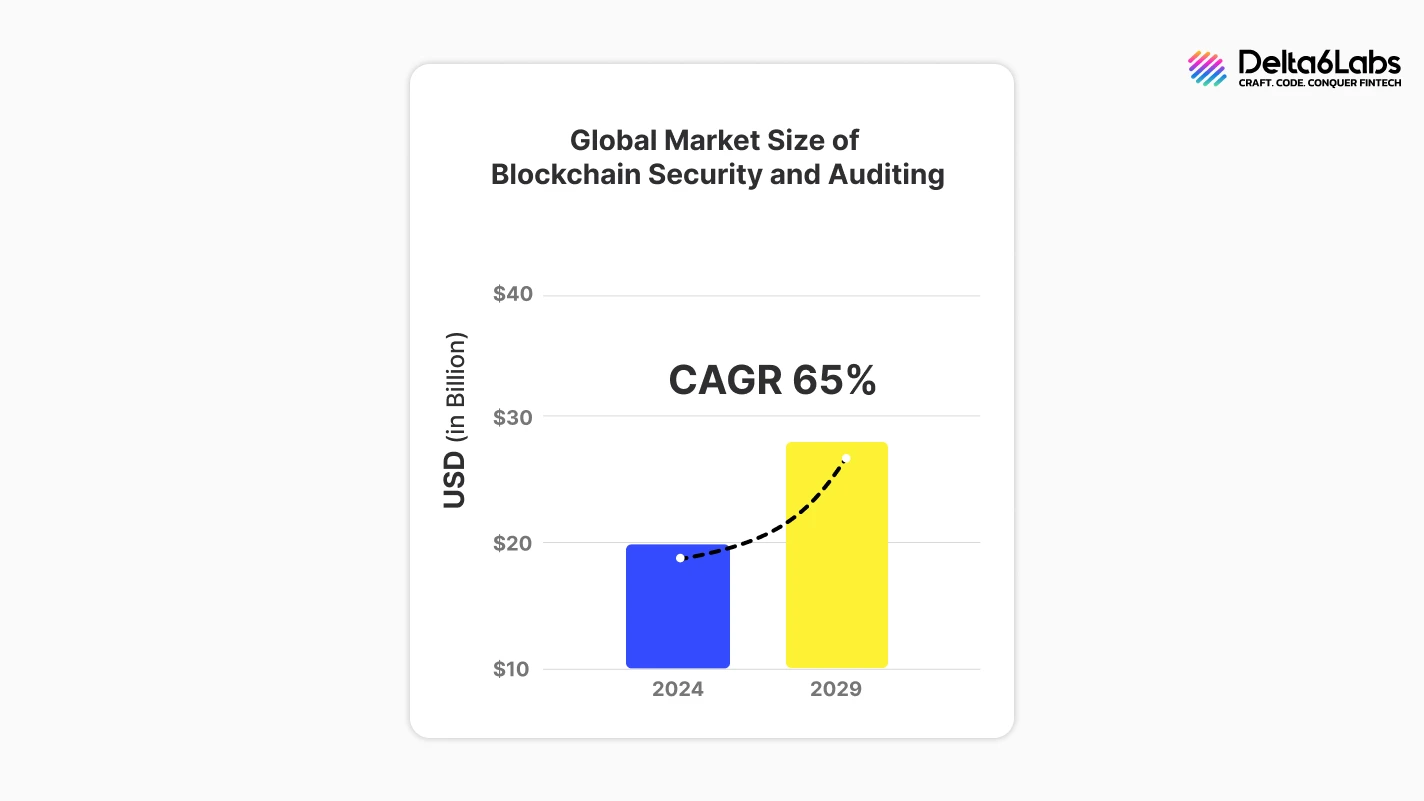
But what is a blockchain audit? What is its importance? How will it be beneficial in 2025? In this blog, we will discuss everything we need to know about blockchain auditing.
What are Blockchain Audits?
Blockchain audits are a method of verifying a blockchain’s functionality, security, and compliance mechanisms according to industry standards. An audit team thoroughly evaluates the architecture design, programming language, and code of the blockchain network to verify that the network is not vulnerable to hacks and other threats.
Blockchain audits are primarily conducted by third-party auditing firms; however, some solution-providing companies, such as Delta6Labs, also offer blockchain auditing as part of their blockchain-based solutions to enhance credibility and transparency. Blockchain audits are also helpful in ensuring that there are no significant losses to any network because of bugs and vulnerabilities in the blockchain.
Types of Blockchain Audits
There are four types of blockchain audits:
Financial Audit
The industry that has utilized the true potential of blockchain technology is finance. This type of audit is primarily focused on the accuracy and reliability of financial data and information stored on a blockchain. In financial audits, transactions, balances, and financial records are evaluated to ensure that there are no suspicious transaction patterns or accounts associated with malicious activities. This type of audit also ensures that the financial activity is in adherence with the legal framework and the rulings of regulatory bodies.
Security Audit
In this type of audit, security measures and protocols implemented on a blockchain are evaluated to identify security loopholes, vulnerabilities, and other security threats. During a security audit, the security of smart contracts, data encryption, and consensus mechanisms is verified to ensure the blockchain network is safe and secure.
Smart Contract Audit
The primary objective of a smart contract audit is to evaluate the code and logic of a smart contract. A smart contract is thoroughly checked for vulnerabilities, coding errors, and security issues.
Compliance Audit
Regulatory issues are prominent in the crypto industry because there is no defined set of rules. Regulatory agencies worldwide are still developing regulations to ensure the transparent exchange of assets and services. Compliance audits are conducted to ensure that the blockchain system is adhering to the regulatory framework.
How Does a Blockchain Audit Work?
Here is a step-by-step process explaining the working of blockchain audits:
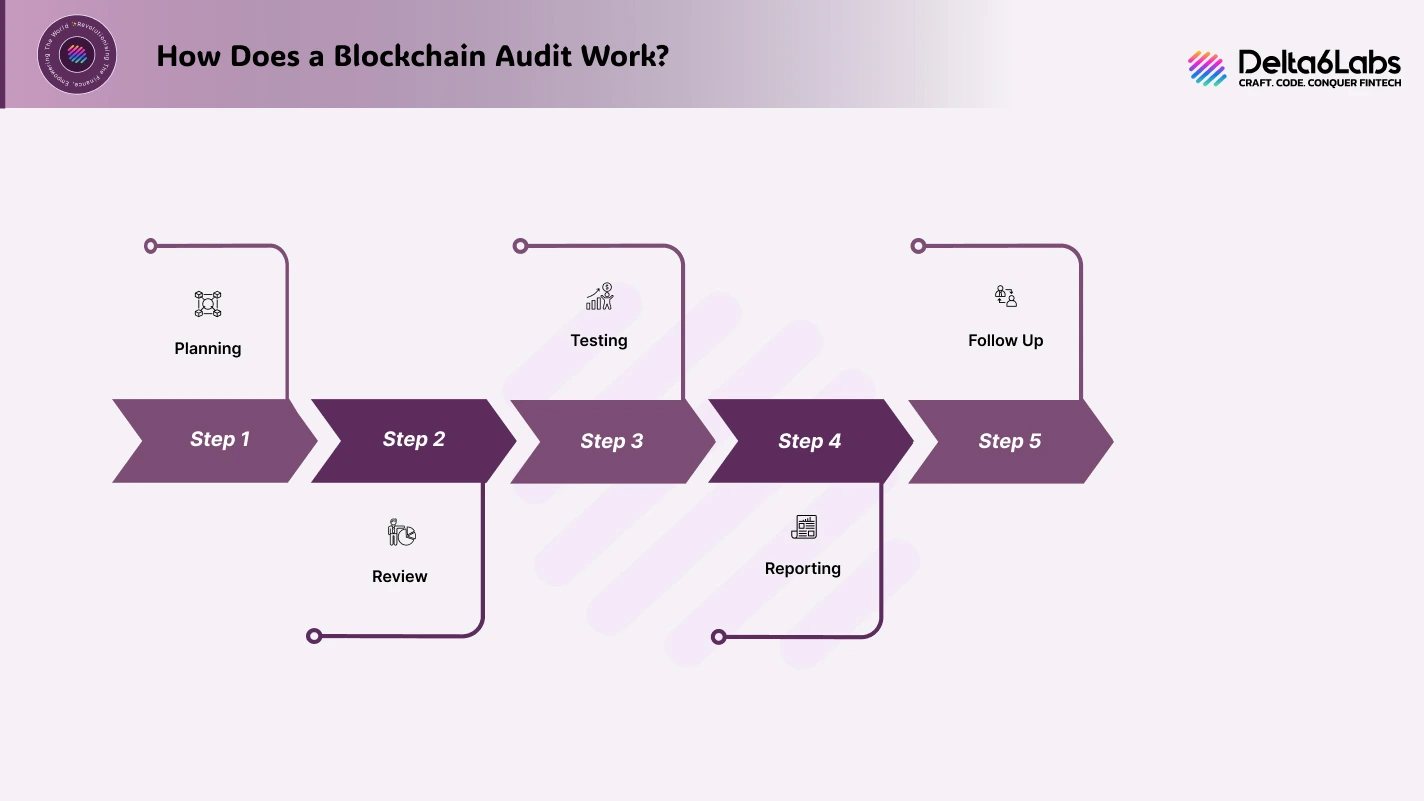
Planning
The initial step in blockchain auditing is notifying the components of the blockchain network, such as smart contracts, mechanisms, and APIs, that need to be audited. Following that, it is critical to emphasize the purpose of blockchain auditing and what needs to be achieved with this auditing process.
Review
The second step is a thorough review of the code to find bugs and other vulnerabilities. The overall architecture of the blockchain network is also reviewed to identify any loopholes and other exploits in its structure and components.
Testing
Testing and configuration reviews are conducted to verify that the bugs in the code are fixed and that no vulnerabilities remain. After that, a comprehensive report is generated and delivered to the client based on the above steps.
Reporting
A detailed report is prepared that includes all the identified issues and vulnerabilities, as well as suggestions for their correction. The document is highly critical to the stakeholders as it provides data about the overall health of the blockchain network.
Follow Up
A Follow-up is mandatory after the report is delivered to ensure that the vulnerabilities do not reappear and the blockchain network is secure.
Benefits of Blockchain Audit
Regulatory Compliance
One of the most significant benefits of a blockchain audit is that it helps keep a check on whether the blockchain network is adhering to the regulatory framework. It allows networks to enhance their credibility among participants.
Enhanced Security
A blockchain audit ensures that all the loopholes and vulnerabilities in the blockchain are identified and the security of the network remains intact.
Mitigate Financial Loss
Blockchain audits can help blockchain projects avoid financial losses, legal issues, and reputational damage resulting from network security vulnerabilities.
Quality Assurance
A Blockchain Audit can help maintain the credibility and reliability of a blockchain network. From architectural design to other vulnerability assessments, blockchain audits assure that the network is robust. These audits also ensure that smart contracts function as expected without any errors.
Transparency and Credibility
Blockchain audits help businesses build trust and credibility among their customers, as conducting a blockchain audit suggests the organization is sincere in mitigating security risks. Additionally, through smart contract audits, it is ensured that no opaqueness is involved in the process.
Network Stability and Reliability
Auditing blockchains ensure they are stable and reliable under various conditions, including high transaction volumes and potential attack vectors. It helps evaluate the blockchain’s scalability, ensuring its robustness and reliability for users and developers relying on its uninterrupted functionality.
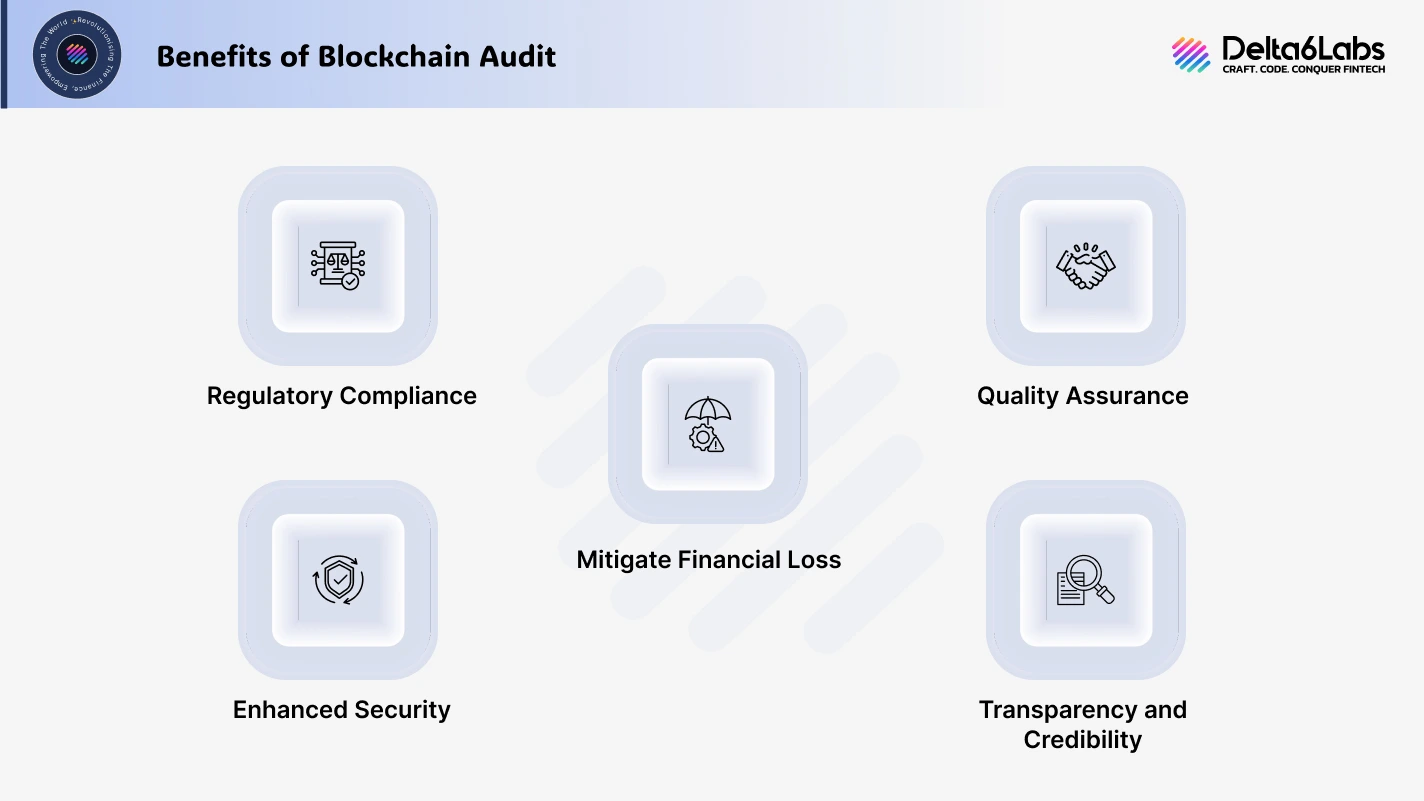
Challenges in Blockchain Auditing
There are some challenges to blockchain auditing as well, and they are as follows:
Time Consuming
Blockchain auditing is a time-consuming process because an auditor has to go through all the complexities of blockchain, as the data associated with each transaction is extensive. This means verifying individual blocks, evaluating the accuracy of timestamps, checking for errors in addresses or keys used in transactions, and other detailed checks.
Complexity of Smart Contracts
Smart contracts are highly advanced and technical. It requires high technical expertise to audit these smart contracts for code and logic, ensuring that they function as intended.
Scalability Issues
The blockchain network will grow, and the number of users will increase, implying that the number of transactions and trading volume will also grow. It can be extremely difficult to audit a large-scale blockchain.
Privacy Concerns
Blockchain networks have gained popularity because they are considered highly transparent and anonymous; however, for auditing, it is challenging to balance between privacy and transparency.
Legal Uncertainties
Regulatory framework and compliance protocols are still under development in the blockchain industry because it is still an evolving technology. It can be challenging to ensure that the blockchain adheres to the regional and global regulatory framework.
Final Words
As blockchain technology continues to develop and prove its worth in various industries, the importance of maintaining its integrity, security, and compliance has become highly critical. Blockchain audits help identify vulnerabilities, check that smart contracts work as intended, and ensure everything adheres to regulatory standards.
There are four major types of blockchain auditing: Smart contract audit, financial audit, compliance audit, and security audit. Additionally, the auditing process presents several challenges—it is complex, time-consuming, and must adapt to rapidly changing legal landscapes. But as we have already discussed, blockchain technology is an evolving technology; it is certain that with time, these challenges in blockchain auditing will be addressed.
There are several firms, including Delta6Labs that offer blockchain auditing services. The number of blockchain auditing services providing firms is increasing, which means that the demand for blockchain auditing is rising. According to reports, this demand is expected to rise more rapidly in the future. Founded in 2023, Delta6Labs has become a pioneer in blockchain auditing through its scalable, cost-effective, and secure blockchain auditing solution. Their team of expert auditors thoroughly checks every component to ensure that there are no vulnerabilities and potential threats to the system.
Frequently Asked Questions
Disclaimer:
The information on this blog is for knowledge purposes only. The content provided is subject to updates, completion, verification, and amendments, which may result in significant changes.
Nothing in this blog is intended to serve as legal, tax, securities, or investment advice of any investment or a solicitation for any product or service.
